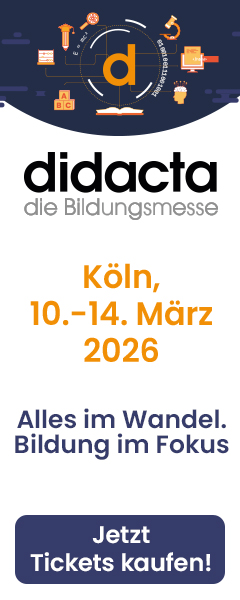More Fun in Mathematics
Hannover, March 2006 - At CeBIT 2006, computer scientists from Saarbrücken presented a trendsetting online learning environment and math courses for schools and universities. Developed by a European research consortium, LeActiveMath delivers an innovative web-based, intelligent, multilingual eLearning system.
Every learner with deficiencies in mathematics dreams of a supportive, motivating personal tutor. This novel e-learning system achieves this in a virtual way: the learner can solve interactive exercises on a computer, can ask for suggestions about more detailed content, and then receive motivating feedback when the task has been performed correctly.
The system adapts to any type of user and offers suitable content and exercises at the appropriate learning speed. The CeBIT presentation - made jointly by the Saarland University and the German Research Centre for Artificial Intelligence (DFKI) - introduced this novel, interactive, and adaptive e-learning system with all its diverse tools. It is being developed in the scope of the LeActiveMath project of the European Union together with partners from science and industry.
LeActiveMath delivers an intelligent, innovative, web-based, multilingual e-learning system for mathematics that can be used in both secondary and post-secondary classrooms, as well as for self-study.
Its semantic content encoding relies on and extends existing standards (such as OpenMath, IEE LOM, Maths QTI), principally designed for and currently used for other mathematical services on the Web.
As a mathematical research project, LeActiveMath investigates cutting-edge technologies and combines the technologies and opportunities of the Web with intelligent tutoring techniques and language technology. This enables a variety and a combination of features that no single system has featured so far:
- LeActiveMath provides mathematical course material adaptive to the learner's goals, the learning scenario, the learner's competency-level individual, and user preferences.
- LeActiveMath integrates tools that can be used in exercises and for exploratory learning, such as a semantic search engine, a concept map tool, an assessment tool, and an exercise repository.
- LeActiveMath develops tutorial dialogues, provides feedback in interactive exercises, and is an open, inspectable student model that adapts to the student's competencies and fosters motivation.
- Its tools and components have been motivated by pedagogical and cognitive research. In particular, LeActiveMath is learner-centred and supports the learner's initiative. The technology as well as the content developed to evaluate the technology realizes a moderate constructivist and problem-based approach to learning and teaching mathematics.
- LeActiveMath is evaluated in a number of European schools and universities. The requirements, developments, and the evaluation are discussed with an advisory board representing the target users.
LeActiveMath is one of the three Specific Targeted Research Projects selected in the first call of the 6th Framework Programme Information Society Technologies, key action Technology-Enhanced eLearning. It runs from January 2004 - December 2006. Apart from the Saarland University and the German Research Centre for Artificial Intelligence, the following partners are also involved in the development of the system: the Universities of Edinburgh, Glasgow, Malaga, and Munich, as well as the publisher Ernst Klett. The project leader is Dr. Erica Melis from DFKI. The system is currently being tested at schools and universities in several European countries.










